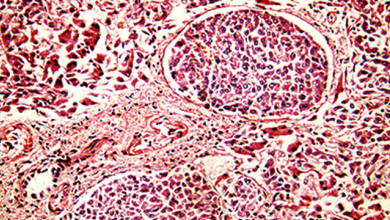Search results
Author(s):
Michela Faggioni
,
Michael C Gibson
,
Roxana Mehran
Added:
3 years ago
The use of non-vitamin K antagonist oral anticoagulants (NVKA) has revolutionized the antithrombotic treatment of patients with atrial fibrillation (AF), finally freeing them of the inconvenience and expense of international normalized ratio measurements. However, add to the equation the presence of coronary artery disease requiring percutaneous coronary intervention (PCI) with stent placement…
View more
Author(s):
Despoina-Rafailia Benetou
,
Panayotis K Vlachakis
,
Charalampos Varlamos
,
et al
Added:
2 years ago
Author(s):
Leo Buckley
,
Ahmed Aldemerdash
Added:
3 years ago
Cardiovascular disease is the leading cause of death in the US.1,2 Although advances in the prevention and treatment of cardiovascular disease have contributed to a decline in mortality rates, this favorable trend has slowed over the past several years.3 Recently, however, a revival of cardiovascular drug development has introduced new treatment options to the market, with several promising…
View more
Author(s):
Paulus Kirchhof
Added:
7 months ago
ESC 2023 — Prof Paulus Kirchhof (University Heart & Vascular Center Hamburg, DE) discusses the findings of the NOAH-AFNET 6 trial (NCT02618577).
NOAH-AFNET 6 (Atrial Fibrillation Network, Daiichi Sankyo Europe) was an investigator-initiated, prospective, randomised trial aiming to demonstrate that oral anticoagulation using the NOAC edoxaban is superior to current therapy in stroke prevention,…
View more
Author(s):
Robert Barcelona
Added:
1 year ago
Author(s):
Colin T Phillips
,
Michael C Gavin
Added:
3 years ago
Acute coronary syndrome (ACS) occurs most often when a vulnerable intracoronary plaque ruptures or erodes to expose a prothrombotic core, precipitating thrombus formation by way of platelet activation,1–3 The spectrum of ACS includes non-ST segment-elevation (NSTE) ACS, where a vulnerable plaque threatens downstream coronary perfusion manifest as an increase in symptom frequency and/or duration …
View more
Dual Anti-platelet Therapy after Coronary Stenting: Rationale for Personalized Duration of Therapy
Author(s):
Donald E Cutlip
Added:
3 years ago
Article
Author(s):
Hisham A Badreldin
,
Khalid bin Saleh
,
Majed Al-Yami
Added:
3 years ago
WRAP-IT
The Worldwide Randomized Antibiotic Envelope Infection Prevention Trial (WRAP-IT) was a prospective multicenter study to determine the safety and efficacy of an absorbable surgical mesh envelope containing two antibiotics (minocycline and rifampin) in reducing infection incidence in patients with cardiac implantable electronic devices compared to standard care.1 Approximately 7,000…
View more
Author(s):
Jeffrey L Turner
,
Nassir F Marrouche
Added:
3 years ago
The incidence of AF is on the rise.1–3 This is secondary not only to increasing prevalence but also a focus on increased recognition of occult AF for primary thromboembolic (TE) prevention.4 How we identify and treat these patients with AF is constantly in flux. While it is possible that a novel procedure or antiarrhythmic drug could create sweeping changes in AF management overnight, here we…
View more
Single-Ventricle Physiology
Author(s):
Lydia Taranto
,
Tabitha Moe
Added:
3 years ago
Article
















